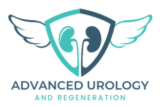
Infertility
Welcome to our comprehensive guide on infertility, where we aim to shed light on this common yet often misunderstood condition. Fertility issues affects millions of couples worldwide, and we believe that knowledge is key to empowerment. In this article, we’ll explore what infertility is, its causes, available treatments, and the hope that lies ahead for those on their journey to parenthood.
What is Infertility?
Infertility is defined as the inability to conceive a child after a year of regular, unprotected intercourse. While this condition can be emotionally challenging, it’s important to remember that you are not alone. Many couples face infertility and seek assistance from healthcare professionals specializing in reproductive medicine.
Understanding the Causes of Infertility can have various underlying causes, and it’s crucial to identify and address them effectively. Some common causes include:
Female Factors:
- Ovulation disorders
- Uterine or cervical abnormalities
- Fallopian tube blockage or damage
- Hormonal imbalances
Male Factors:
- Low sperm count or poor sperm motility
- Abnormal sperm production or function
- Blockages or structural issues
Combined Factors:
- Age-related decline in fertility
- Unhealthy lifestyle choices (smoking, excessive alcohol consumption, etc.)
- Chronic medical conditions (diabetes, obesity, etc.)
Seeking Diagnosis and Treatment If you and your partner have been trying to conceive without success, it’s essential to consult a urologist or a reproductive specialist. They will perform a thorough evaluation to determine the underlying cause of fertility issues. Diagnostic tests may include:
- Semen analysis
- Hormonal assessments
- Ovulation tracking
- Imaging studies (ultrasound, hysterosalpingography, etc.)
- Genetic testing
Based on the diagnosis, your healthcare provider will recommend appropriate treatment options. Common infertility treatments include:
Medications:
- Ovulation induction drugs
- Hormone therapies
- Antibiotics (if infection-related)
Assisted Reproductive Technologies (ART):
- Intrauterine Insemination (IUI)
- In Vitro Fertilization (IVF)
- Intracytoplasmic Sperm Injection (ICSI)
Surgical Interventions:
- Correcting structural abnormalities
- Repairing blockages or obstructions
Coping with Infertility and Finding Support Dealing with fertility issues can be emotionally challenging, but remember that there is always hope. It’s crucial to take care of your mental and emotional well-being throughout the process. Consider seeking support from infertility support groups, therapists, or counseling services specializing in reproductive health. These resources can provide a safe space to share experiences, gain emotional support, and learn coping strategies.
Conclusion: Infertility can be a complex journey, but with the right information and support, you can navigate this path with hope and resilience. Our aim is to provide you with the knowledge you need to make informed decisions about your fertility and explore the available treatment options. Remember, you are not alone, and there are healthcare professionals ready to assist you on your path to parenthood

